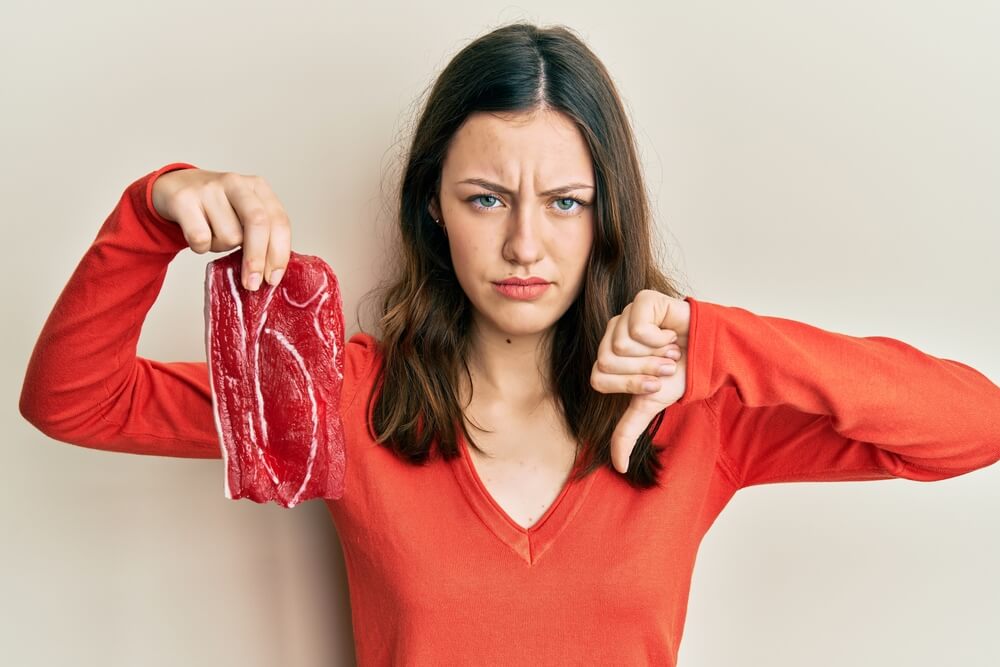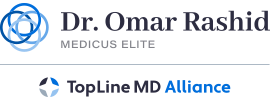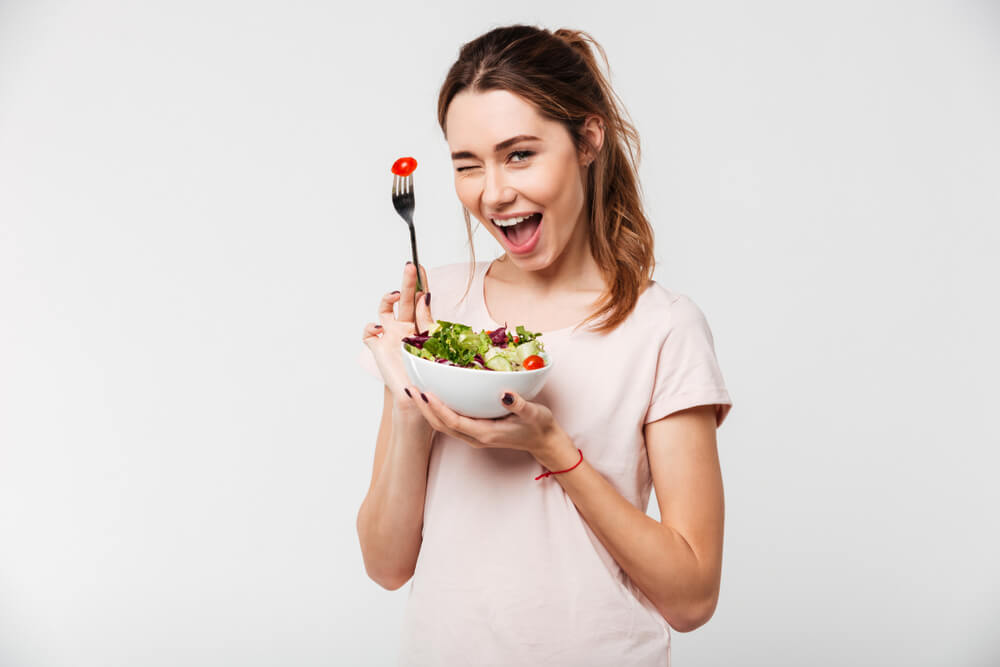The gallbladder is a small organ that stores bile to help the human body digest fats. It is located below the liver. In some instances, the organ needs to be removed. After the gallbladder removal, patients will often need to make certain diet changes to avoid specific issues such as bloating, diarrhea, and gas.
Gallbladder surgery or cholecystectomy is a standard procedure most often performed to get rid of painful gallstones.
Following gallbladder removal, finding a set diet is complicated. The truth is, there’s no strict nutritional regimen or an actual “gallbladder surgery diet,” instead, there are a set of guidelines that patients who had their gallbladder removed should follow to avoid any issues in their digestive processes.
In this article, Dr. Omar Rashid and his team discuss the basic principles of dieting after gallbladder removal.
Immediately After Surgery
During the initial period following surgery, i.e., for the first few days, experts usually recommend consuming mainly clear liquids, gelatin, and broth. While some alcoholic beverages may count as “clear liquids,” they should be avoided for at least a couple of days following gallbladder removal.
After this initial period, the doctor usually suggests adding solid food to your diet, but only gradually. Starting out with smaller meals at first is highly recommended. Still, there are a few food types that should be avoided when getting back to solid foods.
These are the following:
- Foods with high fat content
- Fried foods
- Foods that have strong odors
- Foods that can make you gassy
What Can I Eat After Gallbladder Surgery? Foods to Avoid

After gallbladder removal, it’s not uncommon for patients to deal with diarrhea. The reason for this is pretty simple: because patients don’t have their gallbladder anymore, the bile flows into the intestines directly, acting as a laxative.
Fortunately, this issue will resolve in a few weeks or a few months at most. Also, patients quicken up the process if they take their gallbladder surgery diet guidelines more seriously and avoid the following foods.
High-Fat Products
These foods are usually harder to digest, which is why most healthcare experts recommend avoiding them following gallbladder surgery, especially if you are experiencing bloating, diarrhea, or gas after the procedure.
All in all, fat shouldn’t make up more than 30% of your daily calorie intake, and saturated fat shouldn’t be more than ten percent of these calories.
As a rule of thumb, experts recommend opting for foods that have no more than three grams of fat per serving.
On that note, you should avoid the following high-fat foods:
- Pork
- Beef
- Bacon fat
- Lamb
- Veal
- Poultry skin
- Bologna
- Salami
- Hot dogs
- Cream
- Ice cream
- Full-fat cheese
- Ice cream
- Palm and coconut oil (and other tropical oils)
- Baked goods and other processed foods such as cakes, pastries, and cookies
Spicy Foods
Spicy foods, especially those with capsaicin (the main ingredient in hot peppers, responsible for their hotness), may irritate the stomach lining, leading to nausea, diarrhea, vomiting, and stomach pain after gallbladder removal.
Foods Make Diarrhea Worse
It’s only natural to avoid those foods and compounds that worsen diarrhea, even when your gallbladder is intact. That said, when following our gallbladder surgery diet guidelines, do your best to avoid dairy products, caffeinated drinks, and very sweet foods.
What Can I Eat After Gallbladder Surgery?

So far, we’ve only discussed the things you should avoid after the procedure. Now, let’s talk about the foods you can eat freely and improve your recovery.
Fluids
Constant diarrhea usually drains the body of minerals, fluids, and vitamins. Because of this, patients must stay well-hydrated. Drinking plenty of water, sports drinks, and broth is highly recommended. And as we’ve mentioned earlier, you should steer clear of alcoholic beverages for at least two days following gallbladder surgery, especially if you are still experiencing some of the effects of pain meds or anesthesia.
Low-Fat Options
It shouldn’t come as a surprise that low-fat foods will be much easier to digest and less likely to cause discomfort, bloating, diarrhea, or gas. As mentioned above, following gallbladder surgery, less than 30% of your daily caloric intake should come from fat, even if you eat only low-fat options.
These foods include:
- Fat-free or low-fat (1%) dairy products
- Egg substitutes or egg whites only
- Lentils, peas, beans
- Veggie burgers
- Brown rice
- Whole grains
- Oatmeal
- Vegetables
- Fruits
- Vegetable-base soups
- Salsa
- Mustard
- Low-fat bread and crackers
- Skim milk-based sauces
- Light salad dressings
- Light margarine
- Light mayonnaise
Foods High in Fiber
Those products that are high in fiber can help patients normalize their bowel movements. Still, this doesn’t mean you should go overboard with fiber-filled foods immediately after incorporating solid foods. Your fiber intake should grow gradually over the course of several weeks. Stay away from rapid increases, as they can worsen cramps and gas.
Regarding fiber, there are two main options (insoluble and soluble fiber), and both should be incorporated into your diet.
Soluble fiber’s main characteristic is that it absorbs water during the digestion process. This means that it can increase the size of your stool and slow down your metabolism or digestion processes a bit. Sources of high-soluble fiber foods include:
- Soy burgers
- Lima beans
- Black beans
- Pinto beans
- Navy beans
- Chickpeas
- Tofu
- Oat bran
- Apples
- Beets
- Pears
- Okra
- Oatmeal
- Prunes
Insoluble fiber, on the other hand, doesn’t need to dissolve in water. It sticks to other materials and absorbs fluid, leading to more regular, softer, and bulkier stools and enabling the body to process waste more efficiently.
Good sources of insoluble fiber are:
- Lentils
- Wheat bran
- Legumes
- Wheat germ
- Different berry types, such as strawberries, blackberries, and blueberries
- Spinach
- Green peas
- Green beans
- Potatoes
- Carrots
- Cauliflower
- Whole wheat flour
- Nuts
Keep Track of Your Diet
Keeping a good journal and writing down how much you eat, what you eat, and when can help you better understand how different foods affect your body after your gallbladder surgery. Logging your diet and keeping track of adverse reactions to certain foods can help you avoid making the same mistakes twice and helps prevent problems in the long run.
Fortunately, most patients can return to their regular diets within roughly a month following the procedure.
And even though diarrhea will probably be an issue for several months after the procedure, you shouldn’t ignore it if it persists for more than three consecutive days right after surgery.
Also, if you are experiencing the following symptoms, schedule an appointment with your doctor:
- Inability to pass gas after surgery
- Jaundice
- Vomiting or severe nausea
- Constant abdominal pain that only gets worse
- Constipation for more than three days after surgery
Don’t forget, if you need any help with following these diet guidelines or have any concerns regarding any worrisome symptoms, feel free to reach out to our practice.


